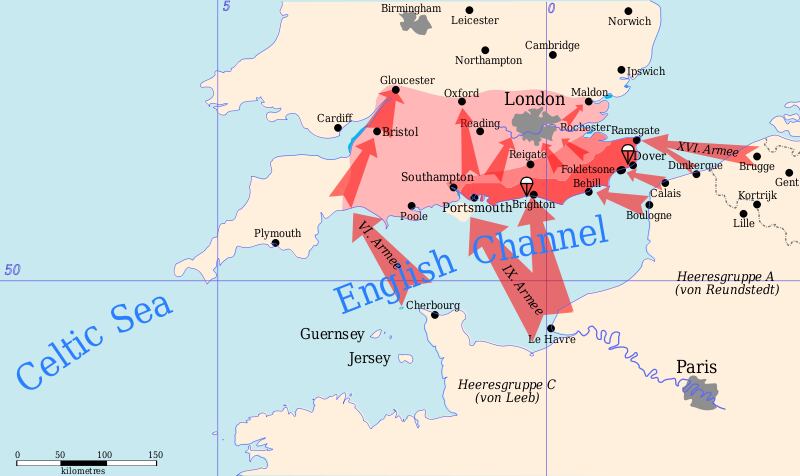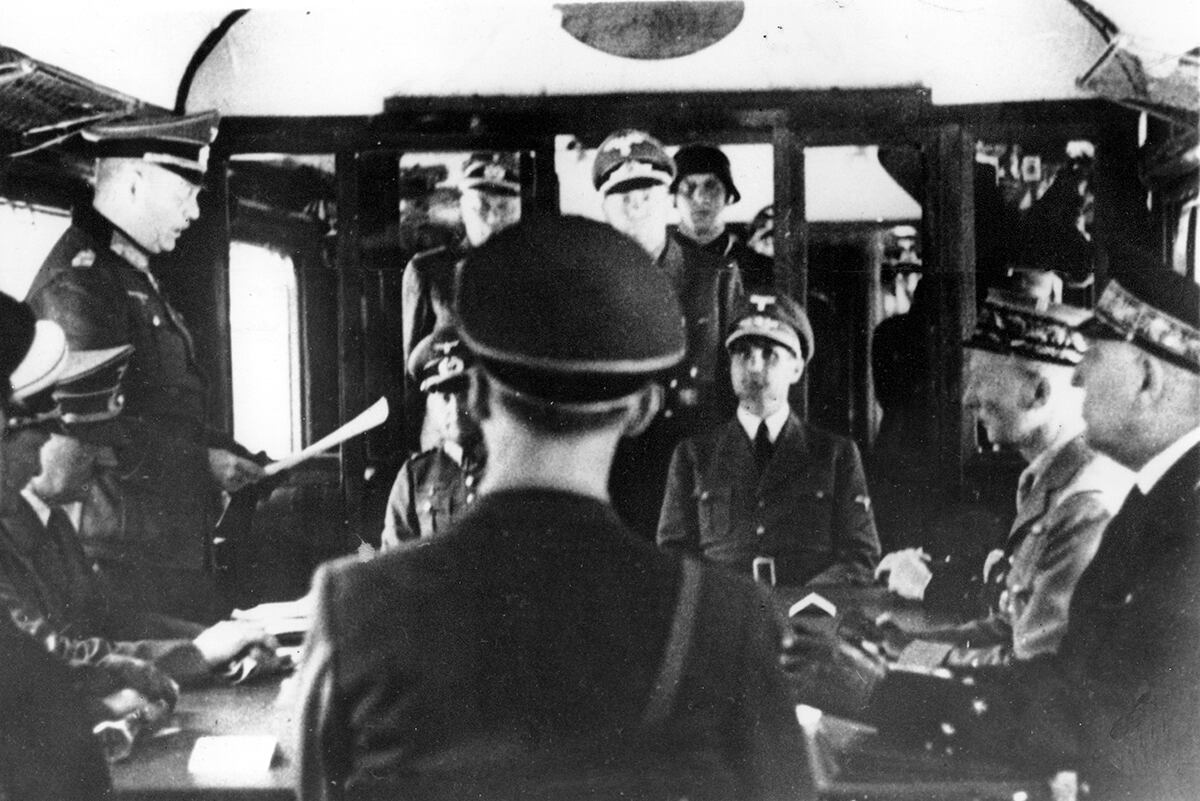Adolf Hitler released a directive 80 years ago on July 16, 1940, declaring his plan to cross the English Channel for a full-scale invasion of Britain. But he never got to use it.
“The aim of this operation will be to eliminate the English homeland as a base for the prosecution of the war against Germany and, if necessary, to occupy it completely,” his infamous Directive No. 16 stated.
Following the German defeat of France in June 1940, which famously resulted in the Battle of Dunkirk, Hitler expected the English in their “hopeless military situation” to engage in peace talks. As such, he had long put off plans for an invasion across the English Channel, CIA documents reported.

When it became evident in early July that such an agreement would not be reached, Hitler decided to consider the suggestions of his Commander in Chief of the Navy and plan for invasion. The CIA documents indicate that Nazi Supreme Command issued a July 2 directive declaring the possibility and seeking estimates of the strength of British forces.
Hitler’s main concern was air superiority, the directive showed. Without weakening or destroying England’s Royal Air Force, he knew an invasion would not succeed.
Pending success in dominating British air space, a first wave of German Army troops, including anti-aircraft artillery, would be carried across the channel by Navy warships. The invasion, dubbed “Operation Sea Lion,” would stretch along a large section of British coastline from the city of Ramsgate to the Isle of Wight.
The invasion never happened, however. The German air force, the Luftwaffe, fought for air superiority to prepare a way for the invasion, but Royal Air Force pilots held their own, and the key fight in this barrage came to be known as the Battle of Britain.
Despite suffering 544 reported losses, RAF pilots inflicted such damage that Hitler withdrew his plans for Operation Sea Lion and removed his fleet from the line of fire, according to the CIA documents.
German failure to defeat Britain was one of their first failures of the war, and it ultimately enabled the country to serve as a base for later attacks against German forces and eventual victory for the Allied Forces.
Harm Venhuizen is an editorial intern at Military Times. He is studying political science and philosophy at Calvin University, where he's also in the Army ROTC program.
